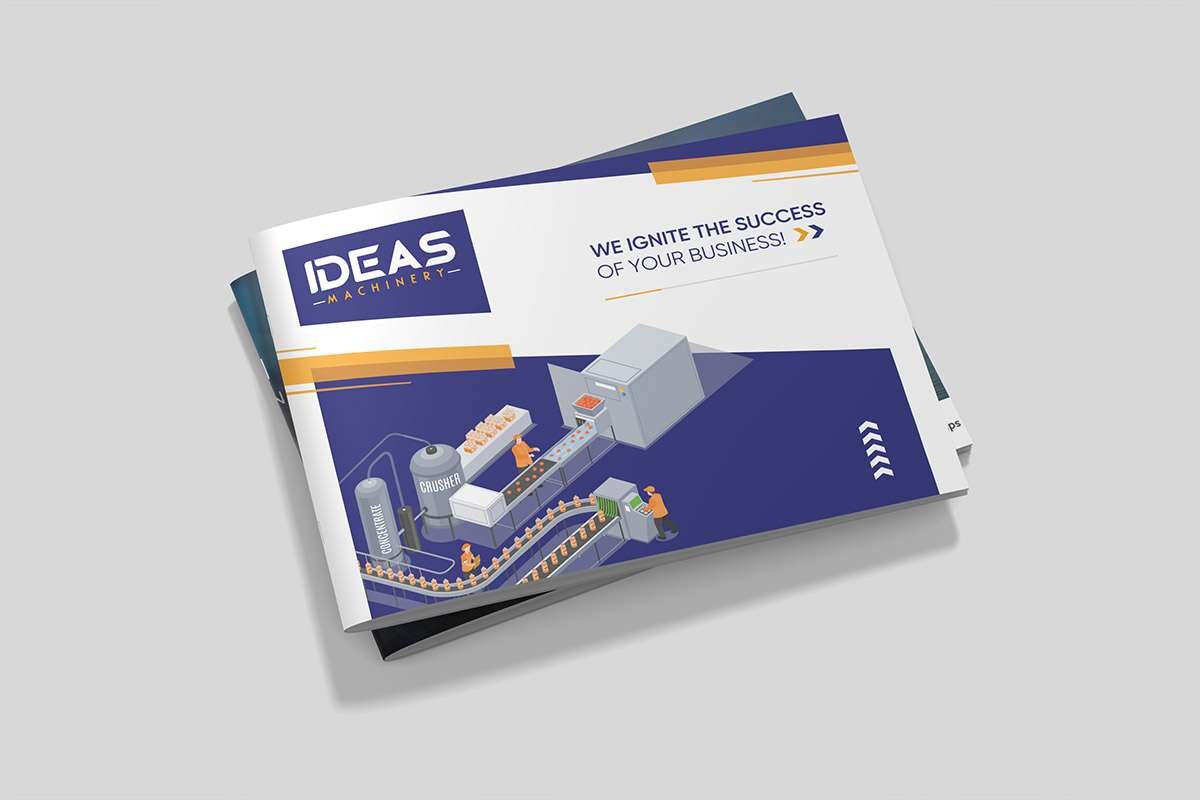What is a Company Profile?
A company profile is a document or presentation that provides an overview of a company's history, mission, products or services, achievements, and other important information. The purpose of a company profile is to give potential customers, investors, and partners a better understanding of what the company does and what it stands for.
A typical company profile will include basic information about the company, such as its name, location, year founded, and number of employees. It will also provide an overview of the company's products or services, target market, competitive advantages, and any notable achievements or awards. Additionally, a company profile may include information about the company's leadership team, organizational structure, financial performance, and future.
A well-crafted company profile can be a valuable marketing tool, as it can help to establish the company's brand identity and build credibility with potential customers, investors, and partners. Company profiles can be presented in a variety of formats, including print documents, online presentations, or video content.
A company profile, like a movie trailer, is a short advertisement meant to generate interest and excitement among potential customers. Typically, movie trailers display scenes from the film accompanied by music and commentary that establishes the context and sets the tone for the film. Trailers are intended to increase anticipation for a film's release and to encourage audiences to see it in theaters.
Exactly, a company profile and a movie trailer share some similarities in their purpose and function. Both aim to generate interest and excitement among their respective target audiences and to promote their products or offerings. The company profile provides a brief overview of a business, its history, products or services, mission, vision, and goals, while the movie trailer gives a glimpse into a forthcoming film, showcasing its story, characters, and key elements. Both are designed to build anticipation and encourage engagement, whether it's with clients, investors, or audiences. In conclusion, both a company profile and a movie trailer serve as marketing tools, designed to promote their respective entities and increase brand recognition.

What are the benefits of a company profile?
The benefits of a company profile include:
- Increased visibility: A company profile helps increase the visibility and recognition of a business in the market.
- Improved credibility: A well-written and comprehensive company profile can enhance the credibility of a business and make it more trustworthy to potential customers and investors.
- Better brand image: A company profile can help build a strong brand image by highlighting the unique aspects of the business and its products or services.
- Attracting customers: A company profile can serve as a marketing tool to attract potential customers and provide them with relevant information about the business.
- Attracting investors: A company profile can help attract potential investors by providing them with an overview of the business's financial performance, management team, and future plans.
- Differentiation: A company profile can help a business differentiate itself from its competitors by highlighting its unique qualities and strengths.

What is the best way to structure a company profile?
A company profile should typically include the following information:
- Company history: A brief history of the company, including its founding, key milestones, and evolution over time.
- Mission statement: A clear and concise statement that defines the company's purpose, goals, and values.
- Products or services: A description of the products or services offered by the company, including any key features or benefits.
- Management team: A brief overview of the company's leadership team, including the names, titles, and experience of key executives.
- Latest projects: A brief overview of the company's latest projects, including their scope, objectives, and expected outcomes.
- Key achievements: A list of the company's key achievements, such as awards, certifications, patents, or recognition from industry experts.
- Reputed clients: A list of the company's reputed clients, including any well-known brands or organizations that it has worked with.
- Testimonials: Quotes or testimonials from satisfied clients or customers that speak to the quality of the company's products or services.
- Financial performance: A summary of the company's financial performance, including revenue, profits, and growth trends.
- Market position: A description of the company's position in the market, including its target customers and main competitors.
- Future plans: A summary of the company's future plans, including any plans for expansion, product development, or new initiatives.
- Social responsibility and sustainability: A discussion of the company's commitment to social responsibility and sustainability, including any initiatives or programs that it has implemented in these areas.
- Contact information: Contact information for the company, including its address, phone number, email address, and website.

It's important to note that the information included in a company profile will vary depending on the size, type, and stage of the business. However, the information should be clear, concise, and accurate, and should provide a comprehensive and compelling picture of the company and its activities.
What are the benefits of a company profile?
The benefits of a company profile include:
- Increased visibility: A company profile helps increase the visibility and recognition of a business in the market.
- Improved credibility: A well-written and comprehensive company profile can enhance the credibility of a business and make it more trustworthy to potential customers and investors.
- Better brand image: A company profile can help build a strong brand image by highlighting the unique aspects of the business and its products or services.
- Attracting customers: A company profile can serve as a marketing tool to attract potential customers and provide them with relevant information about the business.
- Attracting investors: A company profile can help attract potential investors by providing them with an overview of the business's financial performance, management team, and future plans.
- Differentiation: A company profile can help a business differentiate itself from its competitors by highlighting its unique qualities and strengths.

It's important to note that the information included in a company profile will vary depending on the size, type, and stage of the business. However, the information should be clear, concise, and accurate, and should provide a comprehensive and compelling picture of the company and its activities.

What is the best way to structure a company profile?
A company profile should typically include the following information:
- Company history: A brief history of the company, including its founding, key milestones, and evolution over time.
- Mission statement: A clear and concise statement that defines the company's purpose, goals, and values.
- Products or services: A description of the products or services offered by the company, including any key features or benefits.
- Management team: A brief overview of the company's leadership team, including the names, titles, and experience of key executives.
- Latest projects: A brief overview of the company's latest projects, including their scope, objectives, and expected outcomes.
- Key achievements: A list of the company's key achievements, such as awards, certifications, patents, or recognition from industry experts.
- Reputed clients: A list of the company's reputed clients, including any well-known brands or organizations that it has worked with.
- Testimonials: Quotes or testimonials from satisfied clients or customers that speak to the quality of the company's products or services.
- Financial performance: A summary of the company's financial performance, including revenue, profits, and growth trends.
- Market position: A description of the company's position in the market, including its target customers and main competitors.
- Future plans: A summary of the company's future plans, including any plans for expansion, product development, or new initiatives.
- Social responsibility and sustainability: A discussion of the company's commitment to social responsibility and sustainability, including any initiatives or programs that it has implemented in these areas.
- Contact information: Contact information for the company, including its address, phone number, email address, and website.


